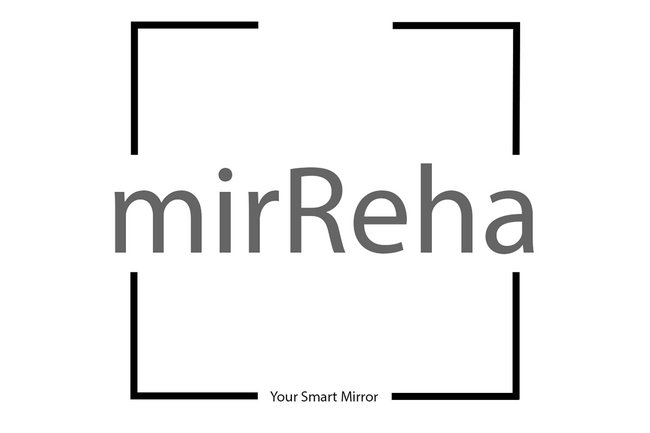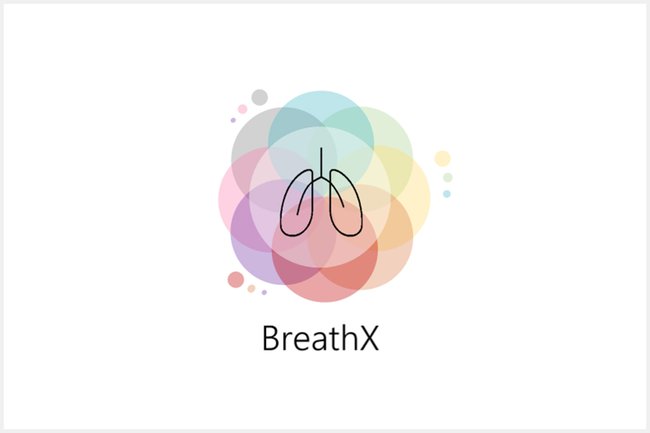Digital Healthcare
Master programme
More courses from the department
Media & Digital TechnologiesLinking Digital Technologies and Healthcare
Shape technical innovation within the healthcare sector! Health and technology experts together learn methods and technical tools to conceive and develop concrete solutions for digital healthcare. You chose from the following specialisations:
- Health Technology Development
- Health Technology Assessment
The focus is on practical benefits. That way you develop concrete solutions for prevention, diagnostics, therapy and care - e.g. mixed reality visualizations in radiology and sensor-aided soles for gait rehabilitation.

Information, Links and Downloads
„The St. Pölten UAS allows me – a professional nurse – to make a lateral move into informatics. Thanks to the part-time structure, I can study alongside my work. This combination is still very hard to find in Germany.“
Svenja Hahn
Student in the master degree programme Digital Healthcare
„The implementation of disruptive information technologies in the healthcare sector has accelerated massively. As a doctor, the study programme Digital Healthcare helps me to keep up with the transition and to stay fit for a sector undergoing major changes.”
Christoph Plank
Student in the master degree programme Digital Healthcare & Resident in Internal Medicine and Cardiology
„The challenges in the healthcare sector are best met through interdisciplinary collaboration between technical specialists and healthcare professionals. The master degree programme Digital Healthcare is the embodiment of this working relationship.”“
Tobias Doeringer, BSc
Student in the master degree programme Digital Healthcare
“This master degree programme has provided me with the opportunity to change careers, moving from healthcare (radiology technology) to IT healthcare."
Anna Springer, BSc, MSc
Projekt Manager and Product Owner at x-tention
“Digital healthcare is an emerging field. It will transform healthcare in the post-COVID era through the use of digital technologies.”
Prof. Daniela Haluza
Public Health Expert at the Medical University of Vienna
“The integration of digitised health-related information into workflows and processes can help make the treatment of patients more effective in the long run. The massive use of digital medical data heralds a new era in evidence-based treatment and allows for healthcare models that are considerably more patient-oriented.”
Mag. Beate Hartinger-Klein
Hartinger Klein Consulting GmbH
“I find the new approach in the master degree programme Digital Healthcare of supporting healthcare processes with media technology very interesting and promising.”
Bernd Wisgrill
Student in the master degree programme Digital Healthcare
“Even in the rapidly growing world of physiotherapy, the technologisation in the form of digital applications is still in its infancy. The master degree programme Digital Healthcare provides inputs and possibilities for innovative ideas and their implementation – so we can speed up this development.”
Philipp Gahleitner, BSc
Student in the master degree programme Digital Healthcare, freelance physiotherapist
„It is thanks to this master degree programme that I‘ve been able to put my own ideas and visions of digitalisation in the healthcare sector into practice. In the process, I’ve established interesting contacts and engaged in exchange with different types of companies.“
Stefanie Pirzl
Student in the master degree programme Digital Healthcare
„Digital Healthcare gives me a deeper insight into the healthcare sector and allows me to combine this with my fascination for technology. It gives me the unique opportunity to develop innovative projects together with my fellow students from the field of healthcare.“
Julia Böck
Student in the master degree programme Digital Healthcare
„The master degree programme Digital Healthcare is modern and future-oriented. It merges two fields that I think belong together: healthcare and technology.”
Anna-Maria Windhofer
Graduate of the master degree programme Digital Healthcare
Projects
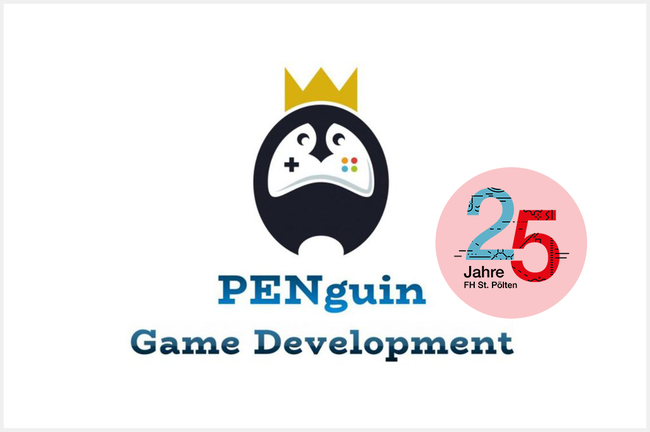
PENguin – Gaming App to perform graphomotor movements in a playful way
Children learn how to use pens in a playful way
News
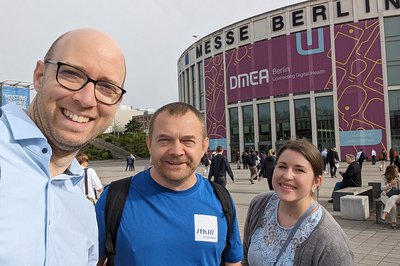
Julia Böck among Finalists of "DMEA sparks Awards"
Our researcher and graduate is among the top 5 finalists for the young talents prize "DMEA sparks Award"
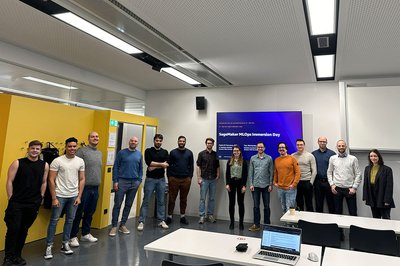
Promoting AI Competencies
Hands-on Insights into Generative AI: St. Pölten UAS Organises Workshop Day in Collaboration with Amazon Web Services (AWS)
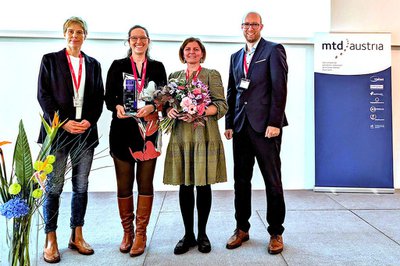
Award for Health Project
St. Pölten UAS Project DIRENE on Digital Healthcare Wins MTD Award 2023
FAQ
Can I help people with Digital Healthcare?
The master degree programme Digital Healthcare allows you to design technological innovations in the healthcare sector. You become part of a dynamic field that continually comes up with new possibilities for improvements in healthcare provision. You develop concrete solutions for various areas including disease prevention, diagnostics, therapy, and care.
Which relevant & equivalent qualifications do I need for this master degree programme?
Prospective students of this programme need to have completed a bachelor degree programme in a relevant discipline at a university of applied sciences or an equivalent study programme at a recognised Austrian or international higher education institution.
The programme admits technology graduates (Technology Experts) from the fields of media or information and communication technologies as well as healthcare graduates (Health Experts) from the medical-technical services, the higher-level healthcare and nursing services (“Gehobener Dienst für Gesundheits- und Krankenpflege”), and related disciplines.
Here you can find the applicable technical admission requirements for Digital Healthcare in detail.
What are my career options as a graduate?
The specialist competencies of our graduates are needed in the broad spectrum of the healthcare sector, for example in social insurance companies, hospitals, industrial and research institutions, and IT-oriented healthcare companies.
On the other hand, our graduates contribute their expertise to their source professions. On the other hand, the digitalisation in the healthcare sector opens up entirely new possibilities such as positions as digital health officers or in start-ups.
Which language level is required for the English-taught contents of the programme?
English language skills at level B2 at least are required for this study programme.
What is Blended Learning?
Blended Learning is the combination of traditional on-site teaching and e-learning sessions. Apart from on-site classes in two-week intervals, additional teaching units are held via virtual seminar rooms.












